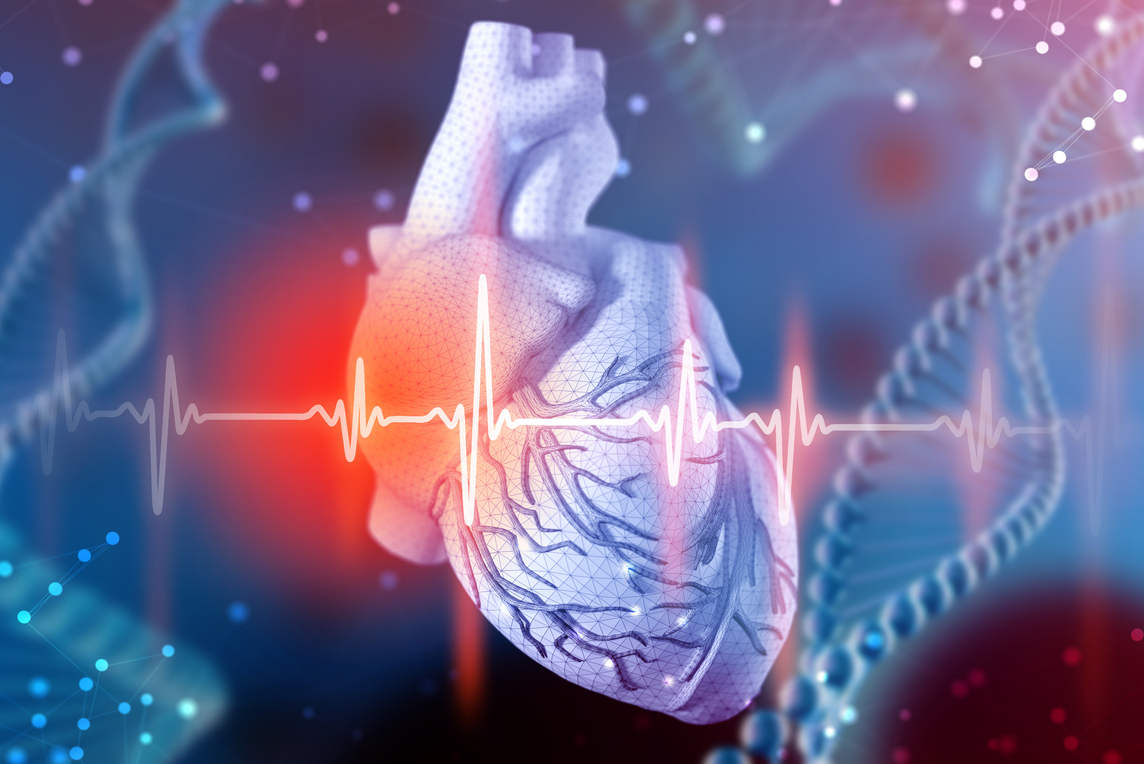A heart attack announces itself with classical symptoms such as chest pain, shortness of breath, cold sweats, aching sensations that can spread to the arms and jaw, and fatigue, right?Not always. A "silent heart attack" is, as the name suggests, a heart attack that doesn't have obvious symptoms. Though fairly rare, it's serious — you can't seek medical help if you don't know anything is wrong!

About type 2 diabetes
When your body is unable to process sugar, you are at risk of developing diabetes. Type 2 diabetes is also known as adult-onset diabetes, and it can manifest itself in one of two ways:
- Insulin doesn’t have the desired effect on the body. Insulin is a hormone that helps regulate sugar movement inside the cells.
- The body doesn’t produce enough insulin to help regulate the sugar levels inside your body.
The biggest problem with type 2 diabetes is that you can have it for a long time before even noticing its effects. A number of complications can arise, because diabetes has a direct impact on the body’s major organs, including the heart.
Even if diabetes only leads to complications over a longer period of time, containing the damage it does become harder unless you are being treated for it. Aside from other complications, type 2 diabetes can lead to heart disease. People who have this condition are more likely to end up with high blood pressure and coronary artery disease, both of which can eventually lead to a heart attack.
About silent heart attacks
Heart attacks generally trigger a number of signs and symptoms that let you know there’s something wrong. However, that's not always the case. Some people experience no symptoms, while others will have atypical symptoms that point to indigestion instead of a full-blown heart attack.
People who have had a silent heart attack are more likely to suffer another heart attack in the future, which could prove deadly. People who have suffered a silent heart attack will need to undergo a series of imaging tests to see if there was any damage and what can be done to minimize it.
Some people can end up having symptoms after the event itself. People have reported extreme fatigue after a heart attack, but also heartburn, difficulty in breathing for the first time, or swelling in the legs. However, a lot of people discover they’ve had a silent heart attack months after it happens.
Why do silent heart attacks occur?
When the coronary arteries are blocked by a blood clot and the heart’s muscle tissue dies, people generally complain about chest pain, fatigue, cold sweats, or shortness of breath. However, there are a few cases where people feel nothing, despite their heart going through major and alarming changes.
- Some people are extremely tolerant to pain, and while their body is going through a heart attack, they might not feel anything in particular. This causes people to unwittingly ignore the symptoms of a heart attack simply because they don’t feel the pain.
- Others tend to confuse the symptoms of a heart attack with those of another problem. For instance, chest pain that’s caused by a heart attack is often mistaken for heartburn, a completely different problem that doesn’t actually have anything to do with the heart. Women are very likely to experience chronic fatigue as a sign of a heart attack, but mistake it for something else, like fatigue induced by menopause. Others who suffered a silent heart attack reported they believed it was the flu or indigestion. But, whenever you’re not sure what’s causing the symptoms, you should see a doctor and rule out the possibility of a silent heart attack.
- A medical condition such as diabetes can affect the nerves responsible for carrying pain impulses. As a result, you may actually have chest pain as you have a heart attack, but feel it only faintly, and therefore ignore it.
Type 2 Diabetes and silent heart attacks
To understand how these two are linked, let’s back up to the concept of “neuropathy”. This is a type of nerve damage that generally occurs in people with diabetes. As these nerves are responsible for the pain that you feel, any damage might end up leaving you unaware of the pain that’s related to a heart attack, which basically increases the odds of having a silent one.
The best thing you can do to protect your heart from a silent heart attack caused by type 2 diabetes is to monitor potential nerve damage. Early diagnosis can lead to the possibility of slowing it down. You should look out for symptoms such as:
- Difficulty in performing mild exercises.
- A sense of dizziness when you stand up.
- Low sex drive.
- Trouble with food digestion.
- Bloating.
- Urinary incontinence.
- A sense of fainting.


Your thoughts on this